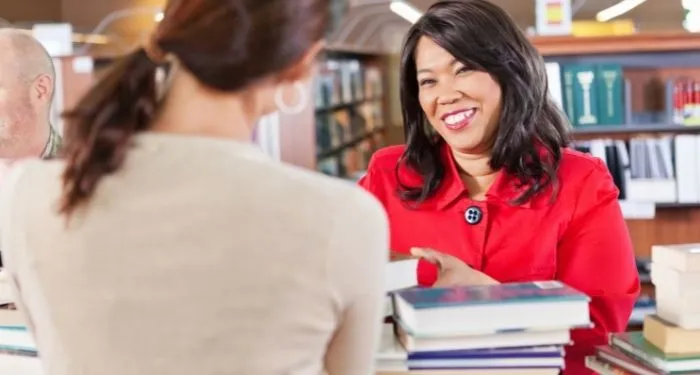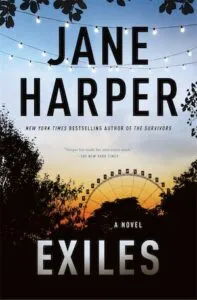
How Librarians Can Help Teachers in Ways You Don’t Expect
It feels like common sense to state that school librarians are excellent resources. Not only are they expert researchers and well-read individuals, they are hubs of the school, interacting with teachers and educators across all content areas. Despite this, I think librarians are often underutilized and have a lot more to offer than people first realize.
Yes, they can help classes with research, match students up with engaging and relevant reading, and teach different kinds of reading strategies. These are all skills librarians teach and apply to students. What educators don’t think about is how these same skills can be used to help them. Teaching is hard enough, and teachers need every tool and support available to them. Their librarian might be one they hadn’t considered.
Fresh Ideas
Librarians are constantly educating themselves on new ideas across all content areas. They are a hub of the school and want everyone, even those who teach classes one might not immediately associate with the library, to feel welcome. They also do this to provide activities and assistance to as many interests and types of students that they have in their school. Because of this, they are untapped fonts of knowledge who can contribute to your planning when you feel stuck.
Is that lesson you worked on for weeks falling flat and you don’t know where to go? Stop by the library and ask their thoughts. The librarian will have a fresh perspective and might be able to help you step back from the problem in order to find a solution. Think of them like consultants hired from outside the company to come in and shake things up. Since they are a step removed from the daily issues teachers face in their classrooms, they are able to come to a problem without the same emotional attachment a teacher might have in the same situation. A glaringly obvious answer might be impossible for a teacher to see because they are so close to the problem, but would be easy for a librarian to spot.
Brainstorming
Likewise, librarians are excellent sounding boards to brainstorm with. For example, say a teacher is trying to implement a new lesson they’re excited about, but not quite sure how to execute. Setting up a time to brainstorm with the librarian will give teachers ideas they hadn’t considered before. Since librarians are knowledgeable across many content areas, they can help you flush out ideas and detect potential pitfalls. Similarly, librarians are in contact with many teachers in the school. Bringing your shiny new idea to them might allow them to direct you to another teacher in the school who has done a similar lesson. This way, you don’t have to reinvent the wheel, letting you work collaboratively with other teachers right in your building.
Research
This seems like a “no duh” reason, but stick with me here. Yes, librarians are experts in research and teach students about databases and reliable sources. But they can use these same skills for you. I’ve heard so many teachers say that they want to incorporate new ideas, texts, or strategies in their classrooms, but they’re just so tired. Teachers are stressed, overworked, underpaid, and disrespected. Between classroom management being more difficult since virtual and hybrid teaching and teachers’ mental health being at an all time low, there is no more energy left for spending hours finding recent and relevant resources. Enter your librarian. If you give the librarian guidance on what theme, era, or skill you’re looking for resources on, they can find those supporting resources for you. And if they can’t, they can find someplace else to direct you to get the help you need. Saving teachers hours of precious work time so they can tend to their other responsibilities, or, gasp, maybe even rest.
Aunt Effect
The aunt effect, as I call it, is an invaluable tool to teachers, parents, and administrators. Have you ever been dealing with a student, told them what they need to do, but they just can’t seem to hear you? Then someone else comes in the room, says the exact same thing you just spent hours on, and all of a sudden the kid gets it? This is the aunt effect. Parents and guardians can say something helpful over and over again to no avail, but the moment a different family member says the exact same thing, it’s understood. Your students have been listening to your Charlie Brown teacher voice all year. And yes, what you’re saying is right and good and makes sense, but these underdeveloped prefrontal cortexes just aren’t understanding you. Bring the librarian to your classroom to back up what you’ve been saying. Take your class to the library to be in a different setting, to allow their ears to open. A different voice with the same message is sometimes what your students need to understand a new concept.
Teacher Advocacy
Librarians often hold leadership positions at their schools, and many are former teachers who understand the struggles and frustrations in the classroom. They are able to speak up to the administration about issues that teachers are facing. While librarians spend most of their time in the library, they also spend time interacting with students and visiting classrooms. They see problems higher-ups might miss. Come to them with your concerns and frustrations. They will be able to work with you and administration on how to create practical solutions to these problems. Even if a solution can’t be found immediately, you can bet on a librarian noodling on it over time and coming back to it in future meetings. A librarian with an unsolved mystery is like a dog with a bone.
Don’t be a stranger to your library; befriend your librarian! They are a resource all on their own that is eager to help you and wants to make your life easier. School librarians are disappearing, just like teachers are quitting in droves. Let’s work together to make each other’s jobs more meaningful, and most importantly, easier.
Libraries can help more than just teachers. They can help you stick to your New Year’s resolutions and reignite your love of reading for pleasure.












